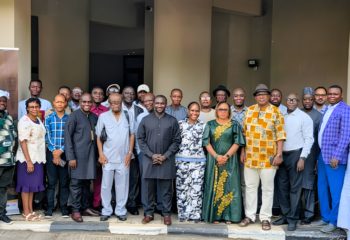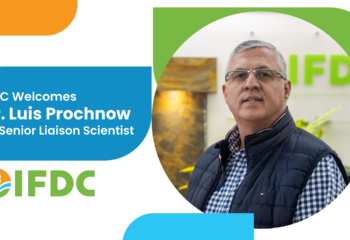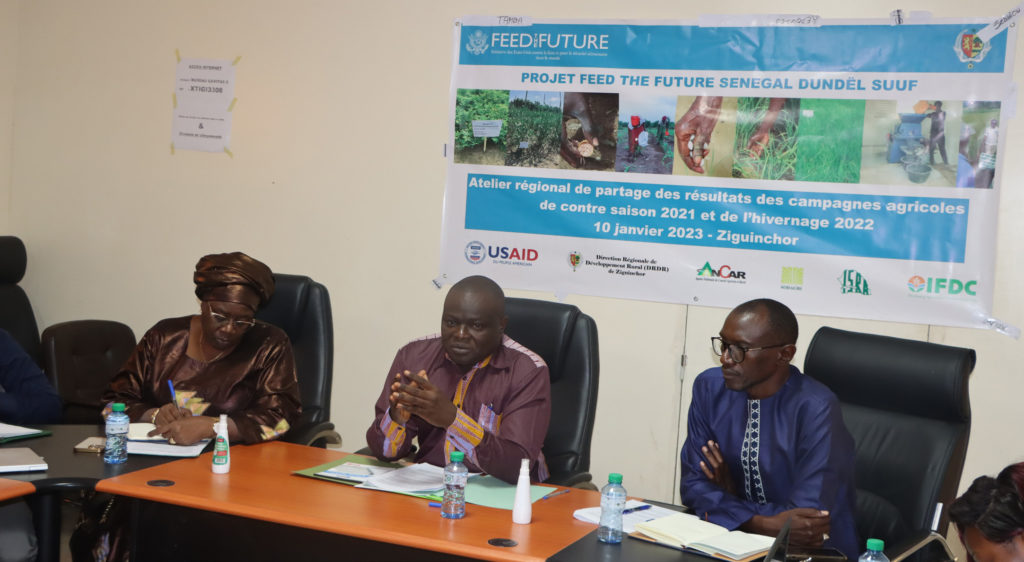
One of the objectives of the Feed the Future Senegal Dundël Suuf project is to boost the income of producers by reducing production costs and increasing the yields of targeted crops.
In this regard, the project, in partnership with the Regional Directorates of Rural Development (DRDRs) of Ziguinchor, Sedhiou, and Kolda, the Society for Agricultural and Industrial Development (SODAGRI), and the National Agricultural and Rural Advisory Agency (ANCAR), promotes the application of microdosing (MD) and urea deep placement (UDP) in Lower Casamance as well as Eastern Senegal and Upper Casamance. To this end, meetings to share the results for the 2022/23 season and validate them were held January 10-14, 2023.
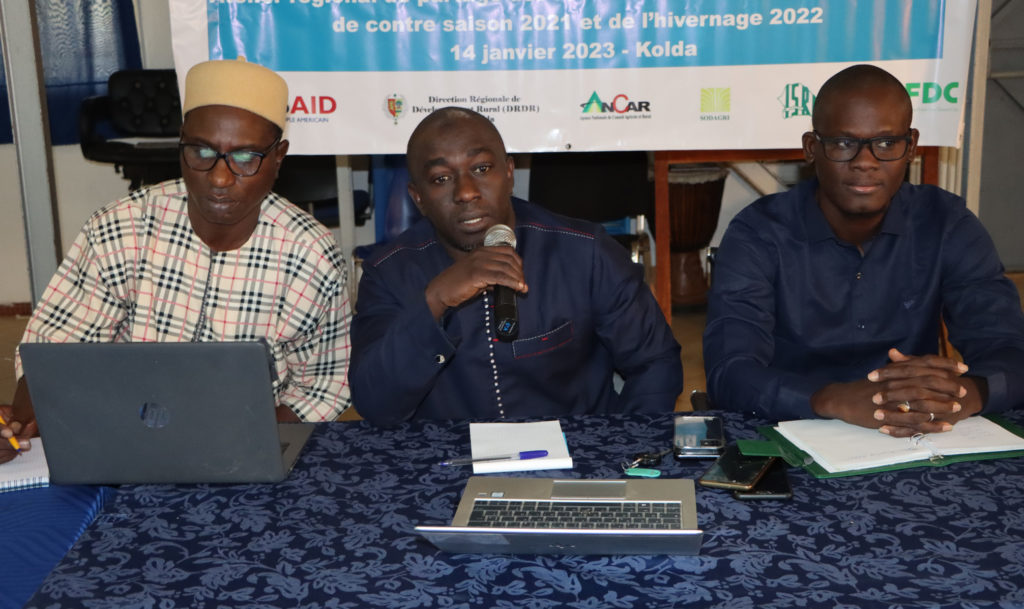
In Senegal, the MD technology was tested on sample millet, maize, and sorghum plots, while UDP was trialed on rice plots. With yield gains averaging 108% for millet, 57% for maize, 17% for sorghum, and 70% for rice, the performance of MD and UDP technologies was confirmed this season.
In addition, meeting discussions allowed participants to raise concerns, make recommendations, and vice versa. During the meetings, attendees addressed three major issues: low use of soil organic matter, limited access to urea supergranules, and difficulty applying the MD and UDP technologies.
Consequently, participants recommended increasing producer awareness of organic matter’s importance, while also strengthening composting capacities, to resolve issues regarding low use of organic matter. In order to increase access to a sustainable form of urea, attendees requested that the Dundël Suuf project support producer organizations in their efforts to acquire machines that produce urea supergranules. Last but not least, the Dundël Suuf project was asked to accelerate the design and provision of appropriate applicators for the MD and UDP technologies.
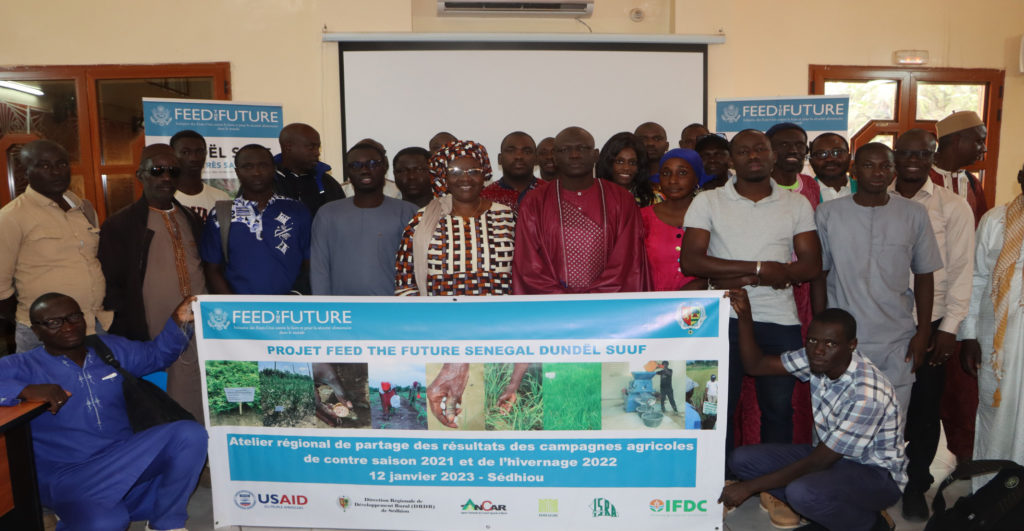
Resolution of these issues will enable the producers in Senegal to maintain or even improve their yield increases.


